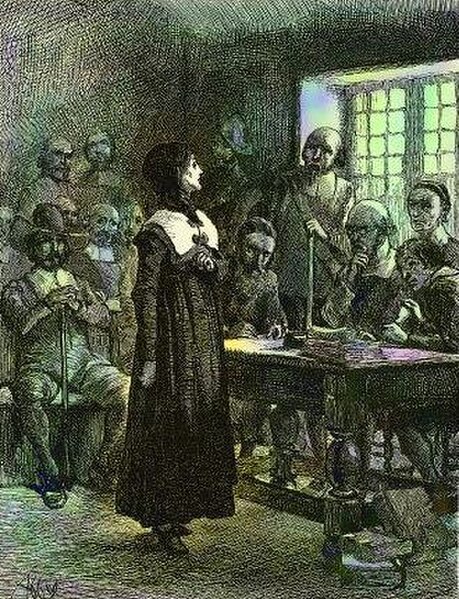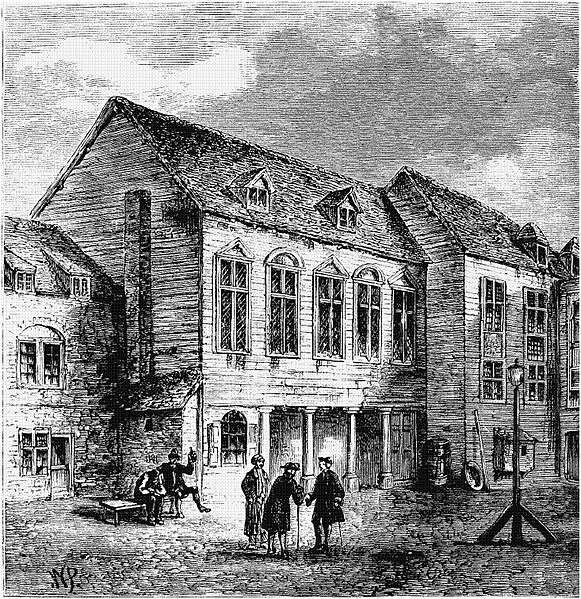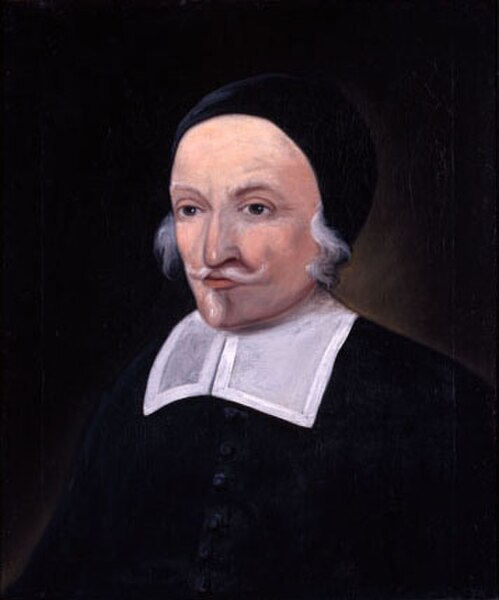Christian feminism is a school of Christian theology which uses the viewpoint of a Christian to promote and understand morally, socially, and spiritually the equality of men and women. Christian theologians argue that contributions by women and acknowledging women's value are necessary for a complete understanding of Christianity. Christian feminists are driven by the belief that God does not discriminate on the basis of biologically-determined characteristics such as sex and race, but created all humans to exist in harmony and equality regardless of those factors. On the other hand, Christian egalitarianism is used for those advocating gender equality and equity among Christians but do not wish to associate themselves with the feminist movement.
Painting depicting Bathsheba and David mourning the death of their son, Nathan.
Female Centered Depiction of the Birth of Christ
Depiction of the poor widow offering coins to the temple treasury which displays her trust in God.
Anne Hutchinson was a Puritan spiritual advisor, religious reformer, and an important participant in the Antinomian Controversy which shook the infant Massachusetts Bay Colony from 1636 to 1638. Her strong religious convictions were at odds with the established Puritan clergy in the Boston area and her popularity and charisma helped create a theological schism that threatened the Puritan religious community in New England. She was eventually tried and convicted, then banished from the colony with many of her supporters.
Anne Hutchinson on Trial by Edwin Austin Abbey
Marshalsea Prison, London, where Hutchinson's father was detained for two years for "heresy"
Reverend John Cotton was Hutchinson's mentor and her reason for emigrating to New England.
Reverend John Wheelwright was an ally of Hutchinson during the Antinomian Controversy, and both were banished.







